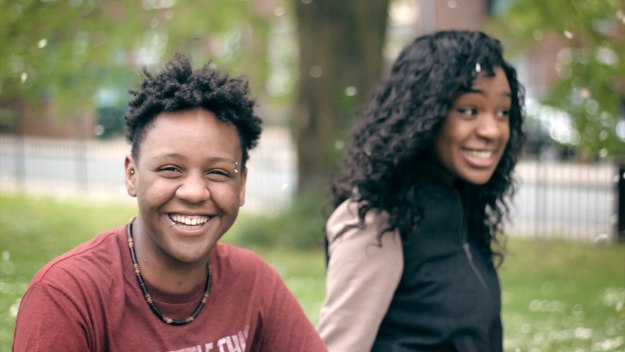
Is it normal to feel that you're the wrong gender?
Poll
Is it normal to feel that you're the wrong gender?
From the moment we’re old enough to recognise our own bodies, we start to become aware of what it means to be a boy or a girl. Whether you’re rocking a lady garden or packing meat-and-two-veg, your genitalia come pre-loaded with a whole bunch of social expectations.
So what happens when the body you see in the mirror doesn’t correspond to the person you feel inside? This is the reality faced by people who live with gender dysphoria – a condition that causes a mismatch between their biological sex and their gender identity. So what does it feel like to live in the wrong body and what can you do about it?
In our featured short from My Trans Story, 9 year-old Kai and his mum face big decisions after he comes out as trans. Want to hear more stories from people who have transitioned? Check out the whole series over on All 4
What's your gender agenda?
Coming to terms with your gender identity brings more challenges than simply eyeing up a new wardrobe or figuring our which public loo to use. Deciding how to embrace the person you want to be can be a stressful and confusing process and there are lots of misconceptions about being trans that can muddy the waters. Lets try and clear things up a bit…
Gender vs. Sex
The difference between your gender identity and your sex comes down to this: Your biological sex is assigned at birth depending on whether you have a penis or a vagina. Gender identity on the other hand is the sex you truly feel yourself to be. When the two don’t match up it can leave you feeling seriously uncomfortable in your own skin.
Is it a choice?
Being trans is not a choice – it’s just the way some people are born. Gender dysphoria is a recognised medical condition. Recent research suggests that this mismatched gender identity could be caused whilst a baby is still developing during pregnancy, possibly due to genetic or hormonal factors. There is certainly nothing to suggest that trans being trans is anything to do with mental health.
Am I trans?
The realisation that you might be the wrong gender can develop at different times for different people, typically ranging from early childhood to adolescence. For some people, it might be a phase they grow out of but for many more it is a cast-iron certainty that will go on to change everything.
There are lots of similar terms that crop up when people discuss gender and appearance. Some of these can seem pretty similar but they all have subtle, but important differences:
- Transgender (or ‘trans’) – An umbrella term used to describe anyone whose behaviour or identity doesn’t conform to the stereotypical expectations for their gender (including transsexuals, cross-dressers and genderqueer people).
- Transsexual – This is someone who identifies psychologically as a gender different to that of their birth.
- Intersex - Someone whose biological sex isn’t clear for physical, hormonal or genetic reasons (e.g. being born with both male and female sexual organs).
- Genderqueer – Someone whose feels their gender identity is neither ‘male’ or ‘female’ but is a combination of the two or even ‘beyond gender’.
- Cross-dresser – Someone who wears the clothes of the opposite gender but who doesn’t necessarily want to live their life as such. The term ‘transvestite’ was often used in the past but this is considered a bit outdated today.
- Drag queen/ king – This is someone who cross-dresses theatrically to entertain people, perhaps as a flamboyant character or alter-ego. This activity often has no link to that person’s gender identity or sexuality.
You can find more definitions related to sexuality and gender in our LGBT Cheat Sheet.
Am I a freak?
Far from it. Whilst exact figures for people living with gender dysphoria are difficult to estimate, a 2012 study by the Equality and Human Rights Commission found that 1% of the 10,000 people they surveyed experienced some gender variance.
Are trans people gay?
Being trans has absolutely nothing to do with sexual orientation. Just like people whose biological sex matches their gender identity, trans people can fancy people of the either same or different gender, or indeed both (or neither!)
How do I transition?
Transitioning is the process by which a trans person goes from living as their birth gender to presenting themselves as the gender they feel they really are. This ranges from ‘social’ transitions like changing their name or their cosmetic appearance (e.g. dress, hair and makeup) to hormonal treatments and complex surgical procedures to change their physical gender. Not everyone identifying as trans will want to go as far as medical intervention however - expressing your gender identity can often be subtler or more complex than this.
If you’re considering transitioning, especially if you feel this may involve medical or surgical intervention, talk to your doctor about the right option for you based on your age and circumstances.
Want to find out more about gender identity? Check out the Hollyoaks guide to busting transgender myths
Straight talk about sexuality and gender
Struggling to find a gender identity or sexual orientation that fits the bill? Try our LGBTQ support page on for size.




